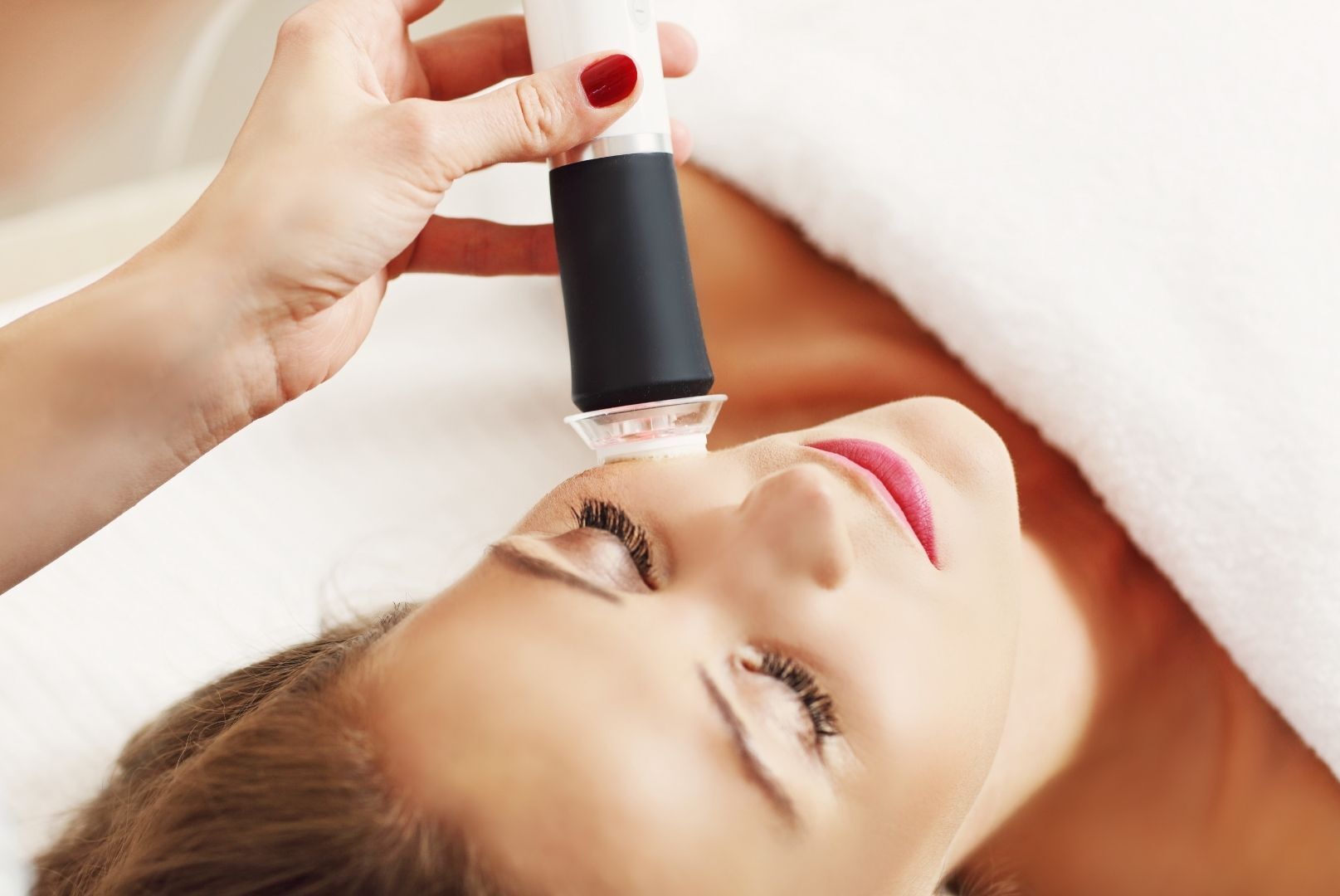
What is Melasma & How to Treat It
Just like many things in life, our skin is constantly evolving and changing. Sometimes you wake up with a perfectly clear and even visage; other days, you discover a new spot (or several spots) that seemingly appeared overnight. One common cause of such spots is melasma.
Simply put, melasma is a cosmetic condition that appears on the skin. There are different circumstances that can induce melasma, and a variety of risk factors that make it more prevalent in some communities than others.
In this article, we break down all the details of exactly what is melasma.
What Is Melasma?
Melasma is a pigmentary disorder that appears as lacy, reticulated brown patches on sun-exposed skin. It can occur anywhere, but most often is seen on the face, particularly the forehead, cheeks, upper lip, and bridge of the nose.
While it may sound straightforward, one Google search of melasma will show you that it can appear in different ways, shapes, and forms. Sometimes it may appear as a patch of freckles, other times as larger brown patches that take up more residency on the face.
Beyond sun exposure, another culprit behind melasma is pregnancy, meaning those carrying a child are more susceptible to the condition. Melasma is often referred to as the “mask of pregnancy”. The increased levels of estrogen and progesterone (among other factors) that occur during pregnancy are thought to be a common culprit. The use of hormonal birth control or hormone replacement therapy can also trigger It.
What Causes Melasma?
There are three main causes of melasma:
- UV Light Exposure
- Heat
- Hormone Changes
While not limited to these causes, they are the most common. Hormones are active during pregnancy and it can be a trigger for melasma. However, it is not the only trigger. Menopause, oral contraceptives, and even normal monthly hormone fluctuations can cause melasma to worsen, particularly if the skin is exposed to the sun or extreme heat.
UV light from the sun stimulates melanocytes, a type of cell in our skin, to produce more melanin (the darkening pigment in the skin). Unfortunately, even a small amount of sun exposure can cause melasma to return after it’s faded. This is why many people continue to get melasma again and again.
Our genetics can also play a role in this skin condition. Some of us are more genetically predisposed to getting melasma.
Who Is Most Likely to Get Melasma?
Melasma affects 1 in 9 women and 1 in 39 men, both of which are high-chance numbers. Melasma is a cosmetic issue; while not dangerous or painful, it can be distressing to see the complexion of your skin change, without a simple, quick fix.
Melasma is also primarily—but not exclusively—seen in those with darker skin. Fair skin tones are generally less affected by it, however, since it’s most likely hormone-induced it can occur in any skin color and type and to any gender. Darker skin tones are more likely to be affected by It than lighter tones, but we truly do see it in all ethnicities and Fitzpatrick types.
How Can Melasma Be Treated?
First, it’s important to have realistic expectations when treating melasma. You may be able to fade It, but it is often difficult to treat and can come back.
There is no known cure for this skin condition, but we can manage it with proper skin care and maintenance treatments like chemical peels. The number one priority for people experiencing melasma is to get a good SPF and be religious with it.
It’s important to use a physical blocker sunscreen that contains titanium or zinc. They are more effective at preventing melasma as these sunscreens help block sunlight from entering our skin cells and causing pigmentary changes. In addition to SPF, it’s also important to avoid direct sun exposure—that means no sunbathing or tanning which will make it worse.
Cyspera is a great non-hydroquinone alternative that works as well as hydroquinone to lighten dark spots and provide a more even complexion. Used once a day for only fifteen minutes, it’s a game-changer product for discoloration. (Cyspera isn’t available over-the-counter, so you’ll have to visit a dermatologist who can decide if it’s the right treatment for you.)
Retinols also help with discoloration. Start slowly, though, as irritation can occur when they are first introduced. Chemical peels and fractionated resurfacing lasers like Fraxel can work wonders to help even the skin tone. Picosure laser is another great option especially for stubborn dermal melasma that is deeper in the skin and more difficult to treat.
The Final Takeaway
Melasma is simply a cosmetic issue—meaning, there is nothing wrong with it and there is nothing wrong with embracing it as is. While there are solutions, it’s important to note for those pregnant or breastfeeding that certain treatments can be dangerous. If you have this condition while pregnant or breastfeeding, take care to use products that are known to be safe.
As always, be sure to double-check with your OB-GYN before starting a new product.
And of course, sunscreen, sunscreen, and more sunscreen. Look for a sunscreen with SPF 30 and apply it in the morning. Don’t forget to reapply, especially if you are outside all day. So many people come to me with complaints of hyperpigmentation of all kinds that appeared seemingly overnight because they forget to apply sunscreen.
So take care of your skin and let Botanica Day Spa help you keep up with peels, exfoliation, and proper skin care products to keep your skin clear and glowing! Call 727-441-1711 today to book your facial.
Love,
Gen



Leave a Reply